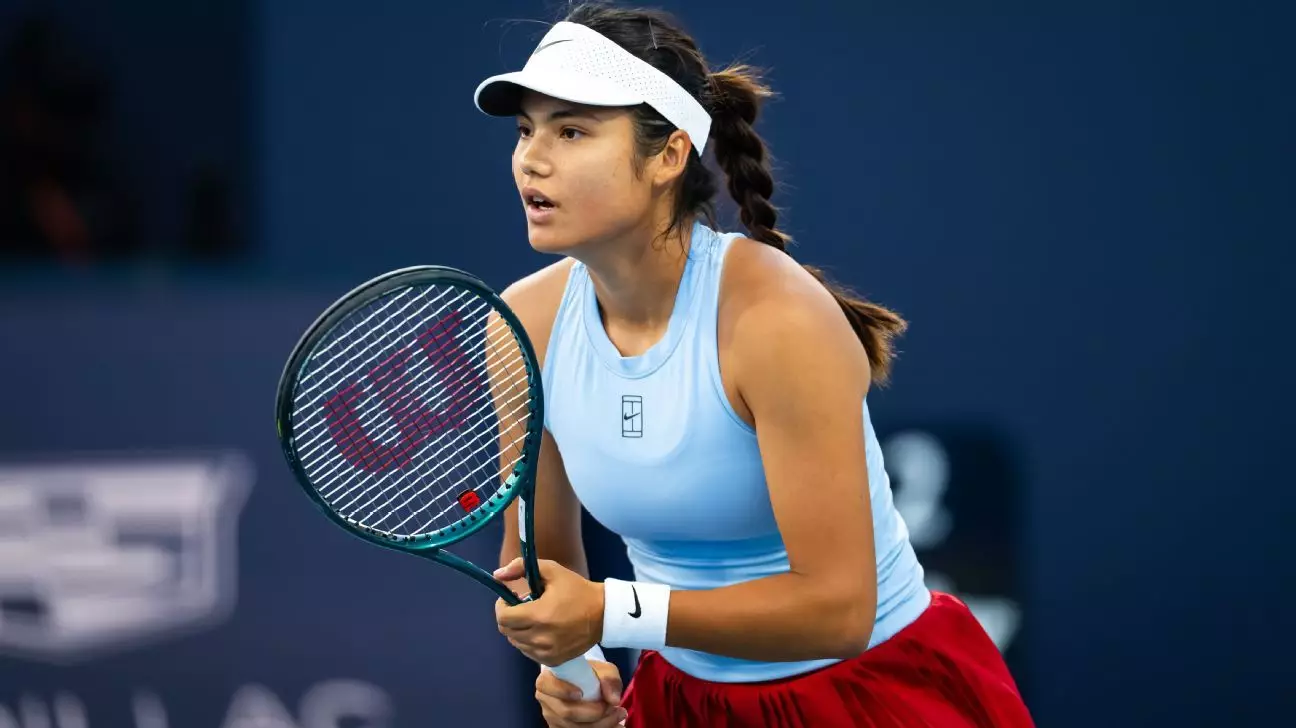Emma Raducanu, the young tennis sensation who captured global attention with her stunning U.S. Open victory, is carving a distinct path in her professional journey. Straying from the traditional dependency on multiple coaches, Raducanu has recently embraced an informal yet effective coaching dynamic with Mark Petchey, a former ATP player and commentator. Her candid acknowledgment that this arrangement feels more organic rather than structured signifies a refreshing approach in an often rigid sport. Raducanu’s ability to reassess and recalibrate her needs is a testament to her maturity as an athlete and individual.
Finding Clarity Amidst Chaos
After facing a tumultuous period marked by fluctuating performances and health issues, her decision to reassess her training philosophy reflects a deeper understanding of her personal needs. Instead of relying on an array of technical guidance, she emphasizes a more intuitive grasp on her game. “I’m still figuring things out: what works for me, what doesn’t,” Raducanu shared, highlighting her evolving perspective. This adaptive mentality is pivotal—not just for her on-court performance—but also in fostering a sustainable relationship with her sport amid the pressures that accompany elite competition.
Prioritizing Well-Being
Raducanu’s choice to withdraw from the Billie Jean King Cup qualifiers exemplifies her commitment to prioritizing her physical health and mental well-being over the incessant grind of competition. Such decisions challenge the conventional narrative that success is solely determined by participation in every possible event. Instead, this athlete is demonstrating the courage to step back in order to gain the momentum necessary for future successes. The significance of her mid-season break cannot be overstated; it’s a crucial strategy that signifies maturity and self-awareness.
Less is More: A Mindset Shift
Raducanu’s newfound mantra, “less is more,” encapsulates a pivotal mindset transformation. As she prepares for the upcoming Madrid Open, her focus on intense yet manageable practice sessions signals a departure from the overtraining that can so often plague elite athletes. “I can definitely be partial to overkilling it sometimes,” she admitted, revealing a relatable struggle familiar to many in high-performance sports. By setting clearer boundaries on her training, Raducanu is not only optimizing her performance but also redefining her relationship with the game, allowing herself the grace to hit refresh.
A Resilient Return to Competition
As she gears up to face Dutch player Suzan Lamens in Madrid, Raducanu’s approach epitomizes resilience and strategic thinking. Having taken the time to reassess her situation, her readiness to return to the court signifies a balancing act between competition and personal growth. Engaging in this deliberate, introspective journey can serve as a profound lesson for aspiring athletes—success is not always rooted in relentless action but can also blossom from thoughtful pauses and self-reflection.
In an era where immediate success often clouds the bigger picture, Raducanu stands as a compelling figure, embodying the balance between ambition and emotional intelligence on the court.


Leave a Reply